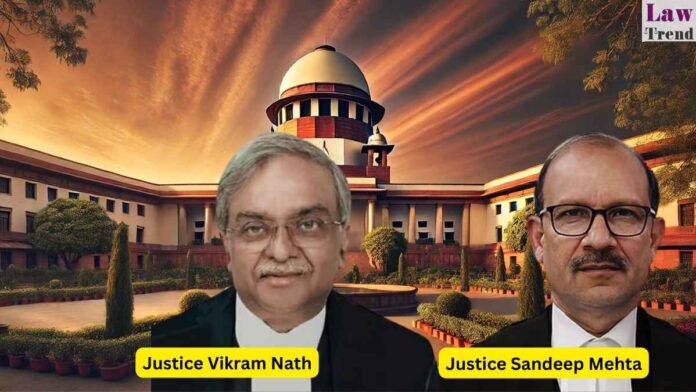The Supreme Court of India has reiterated the procedural propriety that High Courts should encourage litigants to first exhaust the alternative and concurrent remedy of approaching the Sessions Court for anticipatory bail. A bench of Justice Vikram Nath and Justice Sandeep Mehta observed that while High Courts possess concurrent jurisdiction under the Criminal Procedure Code,
To Read More Please Subscribe to VIP Membership for Unlimited Access to All the Articles, Download Available Copies of Judgments/Order, Acess to Central/State Bare Acts, Advertisement Free Content, Access to More than 4000 Legal Drafts( Readymade Editable Formats of Suits, Petitions, Writs, Legal Notices, Divorce Petitions, 138 Notices, Bail Applications etc.) in Hindi and English.




